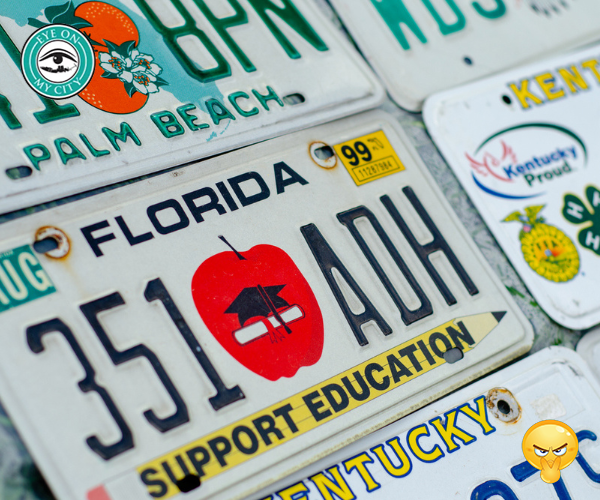Reading and literacy skills are vital to delivering a high-quality education, and many would argue that the lack of students having those skills, especially once they receive a high school diploma, is a civil rights issue.
However, three southern states have pushed to make a difference in reading education and Florida is among the top three.
Florida, along with Mississippi and Louisiana, has been recognized for dramatically improving fourth-grade reading scores. According to a May 2025 report on the 2024 National Assessment of Educational Progress (NAEP) results, Mississippi and Louisiana have shown significant improvements in fourth-grade reading scores, turning around previous declines and surpassing some wealthier states.
Additionally, the website Unleash Prosperity is reporting that along with Mississippi, and Louisiana, Florida now ranks third in the Urban Institute’s fourth-grade reading ranking despite low spending levels.
Mississippi has moved from 49th to ninth in reading on the NAEP over the past decade, with its low-income students now ranking first in the nation. Additionally, the New York Post reported that Louisiana also had strong growth, with fourth graders exceeding pre-pandemic levels in reading and math for the second consecutive NAEP cycle.
So, what is being said about what these states are doing right?
The Wall Street Journal credits these, and other, southern states with getting back to basics that include phonics for reading comprehension. Phonics, a way of teaching reading by stressing the relationship between the sounds of the spoken language and the letters, began in America hundreds of years ago. It was the dominant method for learning to read for centuries until the method began facing challenges in the 1800s from proponents of the “whole word” approach, a debate that continues to influence reading instruction today.
In Mississippi, the baseline for the improvement in test scores is attached to a comprehensive literacy policy known as the Literacy-Based Promotion Act. Implemented in 2013, this policy reform emphasized phonics, early reading skills, teacher training, and holding students accountable. It also involved a controversial practice of retention for struggling third graders.
The strides made in Mississippi have been referred to as the “the Mississippi Miracle” because efforts have led sustained improvement in K–12 student performance particularly in reading and overall graduation rates.
However, an article by Rich Lowry in the New York Post states, “There’s nothing miraculous about a state that adopts phonics and that sets high standards for its kids getting better results in reading instruction.” Lowry says that such success is not only a predictable outcome, but also replicable as policies taken up by other southern states, including Alabama, Tennessee, Louisiana, and Florida, have shown.
In fact, Lowry points out that the original source of all this was a 2002 reading law in Florida that boosted student achievement in the Sunshine State. This law, passed as part of the “Just Read, Florida!” initiative, was signed by Gov. Jeb Bush in 2001. This legislation ended social promotion, required intensive reading instruction for struggling students, and funded teacher training and reading coaches. The resulting boost in student achievement appears to have continued in Florida. State profiles published in The Nation’s Report Card for 2024 show the average score of fourth-grade students in Florida was 218, higher than the average score of 214 for students nationwide.
On a local level, District 2 Duval County School Board Member April Carney said Duval County schools are continuing to move the needle on reading scores by adopting the Science of Reading, which emphasizes phonics.
“We are grateful for our relationship with the University of Florida Lastinger Center, and the UFLI reading program (a program created by the team at the University of Florida Literacy Institute), as well as our strategic partner such as READ USA, who continue to support our students by meeting them where they are, and instill the love of reading,” Carney said.
The UFLI program introduces students to the foundational reading skills necessary for proficient reading. It is designed to be used for core instruction in the primary grades or for intervention with struggling students in any grade.
Florida’s push for changes in reading instruction has likely spurred on other Southern states to do the same. In an article that appeared last month in The Argument, titled “Illiteracy is a policy choice,” journalists Kelsey Piper asserts that it would be irresponsible and wrong to ignore the lesson of Mississippi and the Southern states.
Piper noted that Mississippi outperforms her native California, even though the Golden State is richer and spends substantially more on education per pupil.
John White, interviewed by Piper in the September article, spent several years with the Louisiana Department of Education working on reforms that helped make improvement in reading, writing, math, and science. He listed three primary reasons that have contributed to the success of some states in the quest to increase test scores.
White refers to these three reasons as commonalities that exist among the Southern states that have made significate strides.
The first reason is that the states have adopted reading curricula backed by actual scientific research. This, he says, resulted in these states adopting phonics-based early literacy programs and rejecting ones that used the debunked “whole language” method that encourages students to vaguely guess at words based on context instead of figuring them out sound-by-sound.
“These states all made a commitment to rigorous reviews of the highest quality published materials for students and some level of incentive — whether it was voluntary or involuntary — for districts to implement those curriculums,” White said.
The next reason is teacher training. White said that while identifying a curriculum that will work and telling teachers to use them is part of the solution, you have to ensure that teachers know how to use the curriculum.
According to White, the third, but least favorite reason, is accountability.
“Schools have gotten very distracted,” White said. “Many states have loosened the incentive structures that exist to focus on reading and math knowledge and skills.”
White explained that clear accountability is critical at all levels, including district, school, educator, student, and parent levels.
The achievements of Mississippi and Louisiana have been lauded in other publications around the country. Zachary Faria of the Washington Examiner stated that embracing phonics has led to Mississippi’s fourth-graders performing the highest in reading scores when adjusted for race and inflation. While also mentioning the reading score achievements in Louisiana and Florida, Faria points out that Mississippi is also the highest-ranked state for fourth and eighth-grade math.
Interestingly, numerous articles by research institutions such as the Massachusetts Institute of Technology and organizations and publications by the Harvard Gazette, the National Library of Medicine, and the National Institutes of Health, have shown a strong correlation between reading literacy and mathematical ability.

The above chart is from the website: https://committeetounleashprosperity.com/hotlines/mississippi-and-louisiana-now-have-better-reading-scores-than-all-blue-states/
It is published by Unleash Prosperity, an organization that states its mission is to educate policy makers and the public about government policies that have been proven, in practice, to maximize economic growth and equitable prosperity in America and around the world.
These 2024 demographic-weighted statistics (on the basis of race and income) show fourth grade reading score rankings from the left-leaning Urban Institute.










